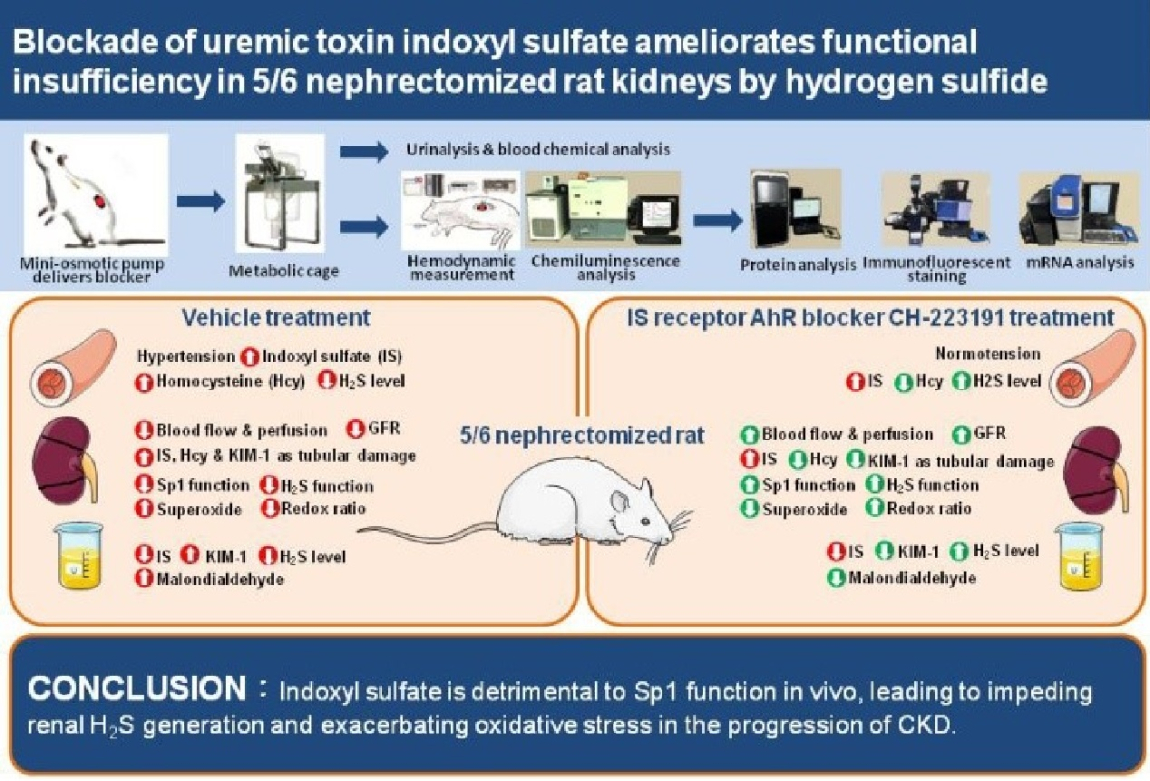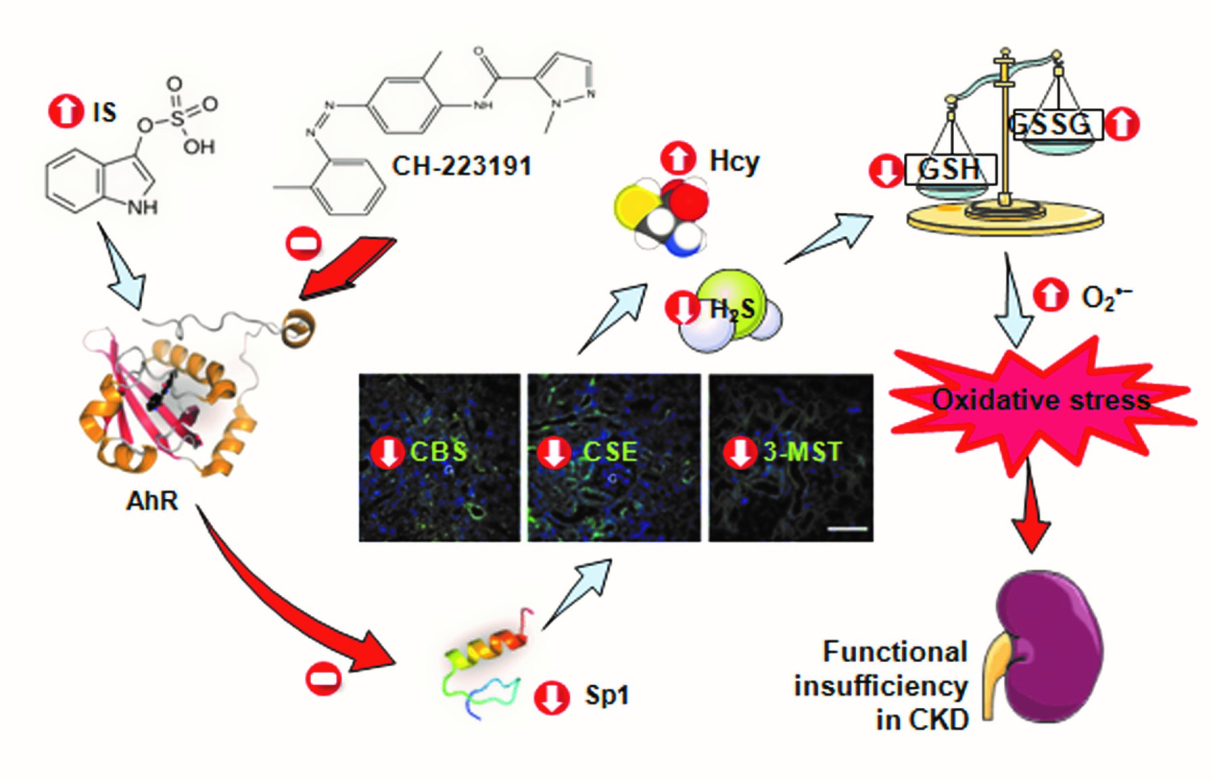Featured Scientist

Ming-Chieh Ma, Ph.D.
Professor
Blockade of Aryl Hydrocarbon Receptor Ameliorates Functional Insufficiency in 5/6 Nephrectomized Rat Kidneys by Restoring Hydrogen Sulfide Formation
Through an unknown mechanism, H2S deficiency in CKD) patients is known to be associated with the accumulation of uremic toxins, leading to oxidative stress and worsening kidney function. Our results reveal a potential mechanism of aryl hydrocarbon receptor (AhR) activation and thereby impairs the regulatory function of the transcription factor specificity protein 1 (Sp1) with respect to H2S-producing enzymes as well as the beneficial effects of AhR blockade on renal H2S system and antioxidant defense. These findings suggest that AhR inhibition may be a promising therapeutic strategy for slowing the progression of CKD.
Keywords:Hydrogen sulfide, chronic kidney disease, aryl hydrocarbon receptor
2 views
